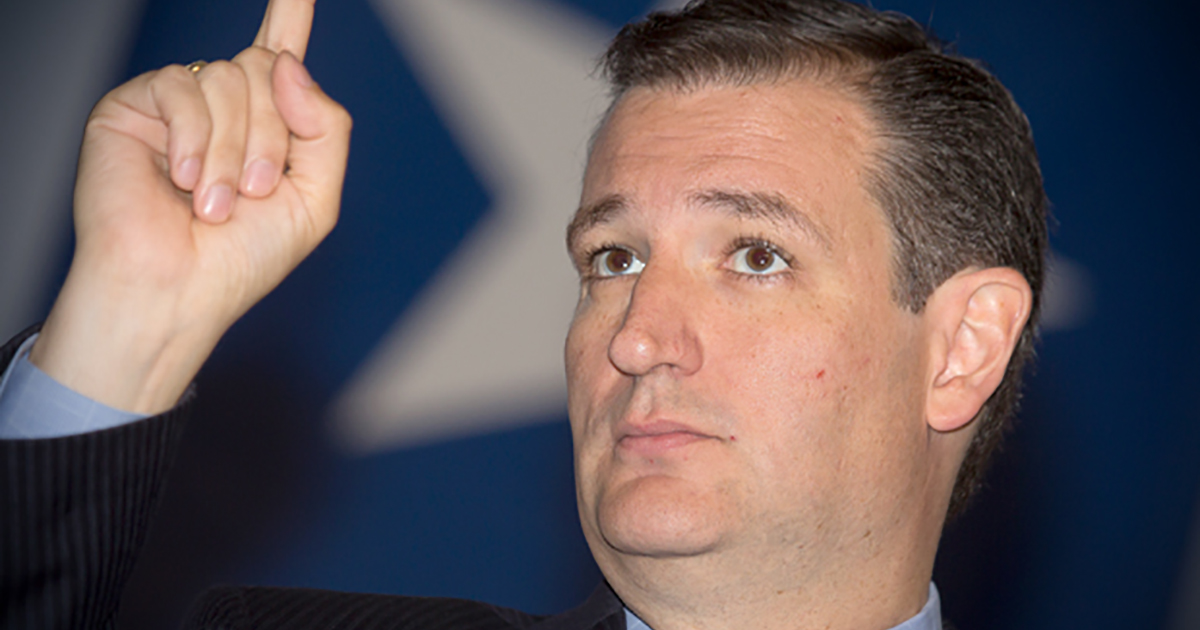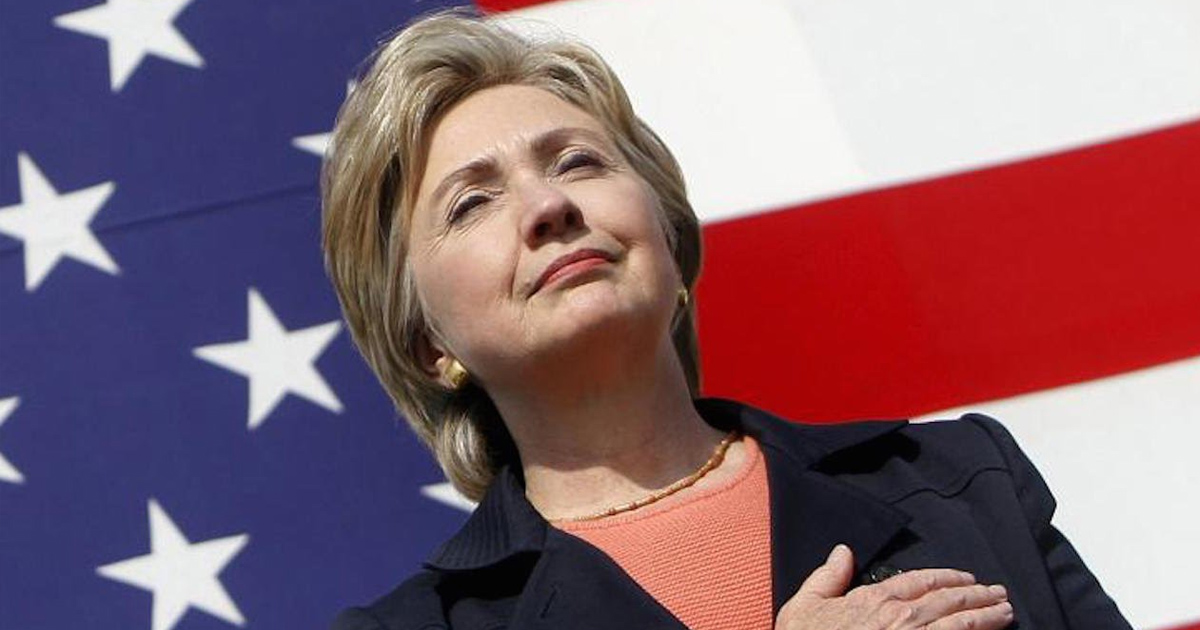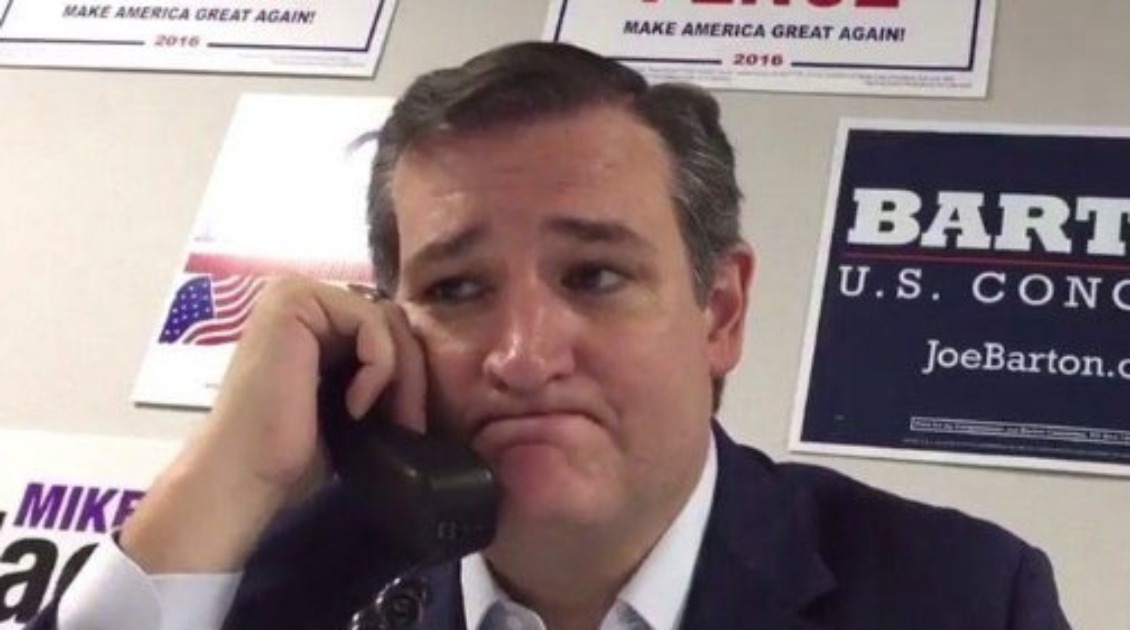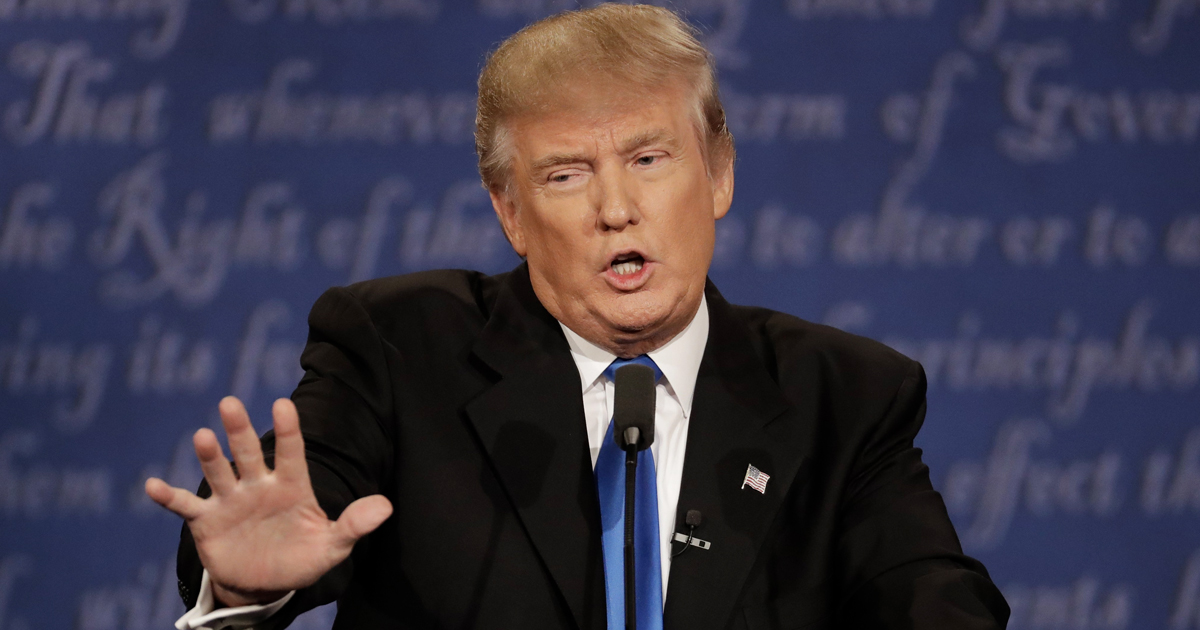As GOP presidential candidate Ted Cruz rises in the polls, he is finding himself under attack by his fellow Clown Car passengers. Marco Rubio told Bloomberg that “Ted is a supporter of legalizing people that are in this country illegally,” while Rand Paul accuses him of waffling on the issue. Jeb Bush accuses Cruz of being a “flip-flopper” on the immigration issues as well.
In many ways, it shouldn’t be surprising. Politicians since time immemorial have been known to switch positions, whether out of political expediency (as is usually the case) or because they’ve actually had a change of heart over an issue (which, although rare, is not completely unheard of).
As Hispanics and the offspring of immigrant parents themselves, Cruz and Rubio are having to tread carefully when it comes to the complex immigration issue. On one hand, a significant number of right-wing U.S. voters would just as soon see the borders closed, if support for Trump and his racist, xenophobic rhetoric is any indication. That rhetoric has largely alienated Hispanics across the board – and no Presidential candidate has won the White House in recent years without the support of the Hispanic electorate. Earlier this fall, Cruz – whose father was a Cuban immigrant – drew fire from Hispanics because of his failure to call Trump out on his anti-immigrant hate speech.
Since then, Cruz has attempted to reach out to conservative Hispanics. He has actually gotten a bit of support back from the National Hispanic Christian Leadership Conference (NHCLC). Now, he’s under attack from rival candidate Marco Rubio for trying to “jam [immigration] amnesty down the American people’s throats.” Speaking to reporters in South Carolina, Rubio said,
Ted is a supporter of legalizing people that are in this country illegally…when the Senate bill was proposed, he proposed legalizing people that were here illegally. He proposed giving them work permits. He’s also supported a massive expansion of the green cards. He’s supported a massive expansion of the H-1B program.
Responding on the right-wing Mike Gallagher Show, Cruz called Rubio’s accusation “laughingly, blazingly, on-it’s-face false.” But Rubio isn’t the only one calling Cruz out on his apparent inconsistencies on the issue of immigration. Appearing on CNN’s State of the Union, libertarian GOP candidate Rand Paul said, “On several things, [Cruz] wants to have it both ways.” At the same time, Jeb Bush has gotten his own shots in, not only at Cruz, but at other GOP rivals. At his recent town hall meeting in New Hampshire, Bush said his opponents were “doing the curly shuffle…[they’re] spinning on the top of the needle with this, trying to contort themselves into views that they didn’t have in the recent past.” Bush added, “You have to ask them if they’re sincerely changing their views or doing it for political purpose.”
While it doesn’t take someone with an advanced degree in political science to answer that last question, it also bears mentioning that the immigration issue is not as cut and dried as most people believe it to be. Often, it’s a tool used by lawmakers in order to manipulate, pander and trip up the opposition. At the heart of the current debate is an immigration reform bill that came up in 2013, when the Democratic Party still retained some control over the Senate. Known as the “Border Security, Economic Opportunity, and Immigration Modernization Act of 2013” (S.744), the bill was supported by a bi-partisan group known as the “Gang of Eight” – which included the junior Senator from Florida, Marco Rubio. The original bill included a citizenship path for undocumented workers already in the U.S. as well as a “fast track” to permanent residency for immigrants with advanced degrees in science, technology, engineering and mathematics (“STEM” fields). There were also improvements made to work visa options available to low-skilled workers.
The bone of contention and basis of the attacks on Cruz have to do with his support of the bill and the citizenship path provision. While Rubio and others accuse him of supporting the legalization of illegal immigrants, Cruz himself denies ever having supported legalization. What happened was that Cruz, who supported the bill, introduced an amendment that would have stripped the law of its path to citizenship provision – but would have allowed illegal immigrants to gain legal resident status. It hasn’t been clear as to just why Cruz introduced that amendment. According to Cruz campaign representatives, it was all a bluff. Cruz claims that the real purpose of the bill was a ploy on the part of Democratic lawmakers to create new citizens, who would then go on to become Democratic voters. (Incidentally, his latest campaign buzzword is “undocumented Democrats.”) His purpose in introducing the amendment was to expose those intentions – or so Cruz claims. At the same time, Cruz has fired back at Rubio for his initial support and co-sponsorship of the bill. Speaking at Princeton University in May of 2013, Cruz said:
What I believe is happening is that [the] citizenship provision is designed, and the White House knows it’s designed, to be a poison pill in the House to torpedo the bill…because they want to campaign in 2014 and 2016, and say, ‘See those Republicans? They killed immigration reform.’
What Cruz says is that he wants “common sense” immigration reform. Nonetheless, he’s been vague on the subject. When called on it, all he will say is that the issue will have to wait until the borders are “secured.” In the recent debate, all he would say is “I do not intend to support legalization.”
Meanwhile, Cruz is getting traction, particularly in the South. According to a recent article in the New York Times, he’s even starting to steal some of Trump’s thunder in that region of the country, taking a page out of the Donald’s anti-immigrant playbook.
We may never know for certain what is truly motivating Cruz in making his apparent switch on the immigration issue. However, one bonus for the corporate oligarchy about “legal status” without actual citizenship for immigrants is that it goes a long way toward creating a pool of cheap labor that has no political voice.
While no GOP candidate has been willing to come out and say that, it’s a good bet that it’s on their minds.




